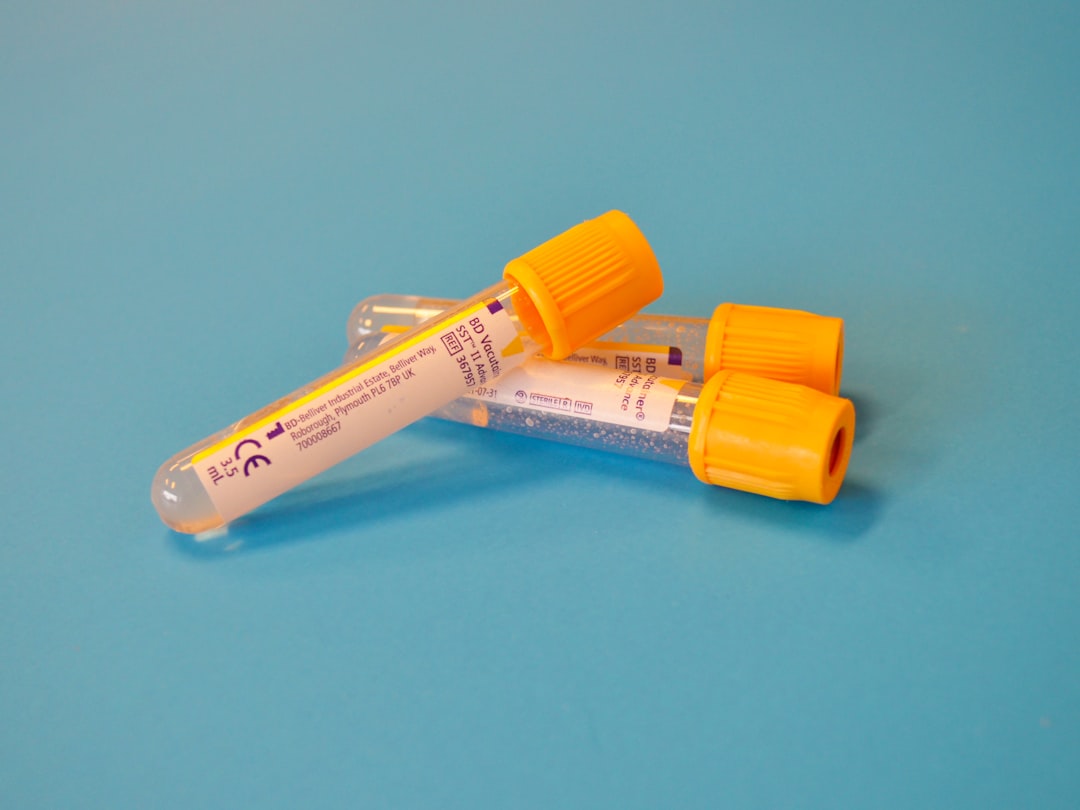What is it about?
A major portion of interindividual differences in complex traits and drug response is accounted by Single nucleotide polymorphisms(SNPs) attributed by change in a nitrogen base of nucleotide of DNA. Some of these polymorphisms in neuro transmitter pathways such as dopaminergic pathway may manifest as altered susceptibility to psychiatric diseases or towards interindividual differences in endophenotypes such as cognition and side effects to antipsychotic drugs manifested as tardive dyskinesia. Here we have checked the impact of two SNPs(rs1076560 in DRD2 ; rs4680 in COMT)of genes in dopamine signaling pathway on susceptibility to Schizophrenia, cognition and tardive dyskinesia
Featured Image

Photo by Sharon McCutcheon on Unsplash
Why is it important?
We were able to identify that the two SNPs were associated with involuntary movement of limbs and trunk (limb truncal Tardive dyskinesia) caused by antipsychotics in Schizophrenia subjects. Further smoking was found to affect tardive dyskinesia in Schizophrenia subjects. Abstaining from smoking may reduce the severity of tardive dyskinesia . The DRD2 SNP is a splice variant that affects alternate splicing thereby formation of D2S and D2L forms of the receptor. It was associated with Negative scale (in tardive dyskinesia negative subjects) and diminished expression factor of Positive and Negative syndrome scale(PANSS). The T allele of DRD2 SNP was earlier associated with reduced expression of presynaptic D2S in prefrontal cortex . Further those subjects with T allele of DRD2 SNP had higher diminished expression scores. So D2S reduction may manifest as higher diminished expression scores. Further the A allele of COMT SNP was associated with higher emotion efficiency scores in Schizophrenia subjects. So the use of COMT inhibitors may increase efficiency of emotion in schizophrenia subjects
Perspectives
This study which uses pharmacogenetic approach in two important genes of dopaminergic pathway using correlates of endophenotypes may lead to personalized medicine
Dr. Toyanji Joseph Punchaichira
University of Delhi
Read the Original
This page is a summary of: The effect of rs1076560 (DRD2) and rs4680 (COMT) on tardive dyskinesia and cognition in schizophrenia subjects, Psychiatric Genetics, June 2020, Wolters Kluwer Health,
DOI: 10.1097/ypg.0000000000000258.
You can read the full text:
Resources
Contributors
The following have contributed to this page










